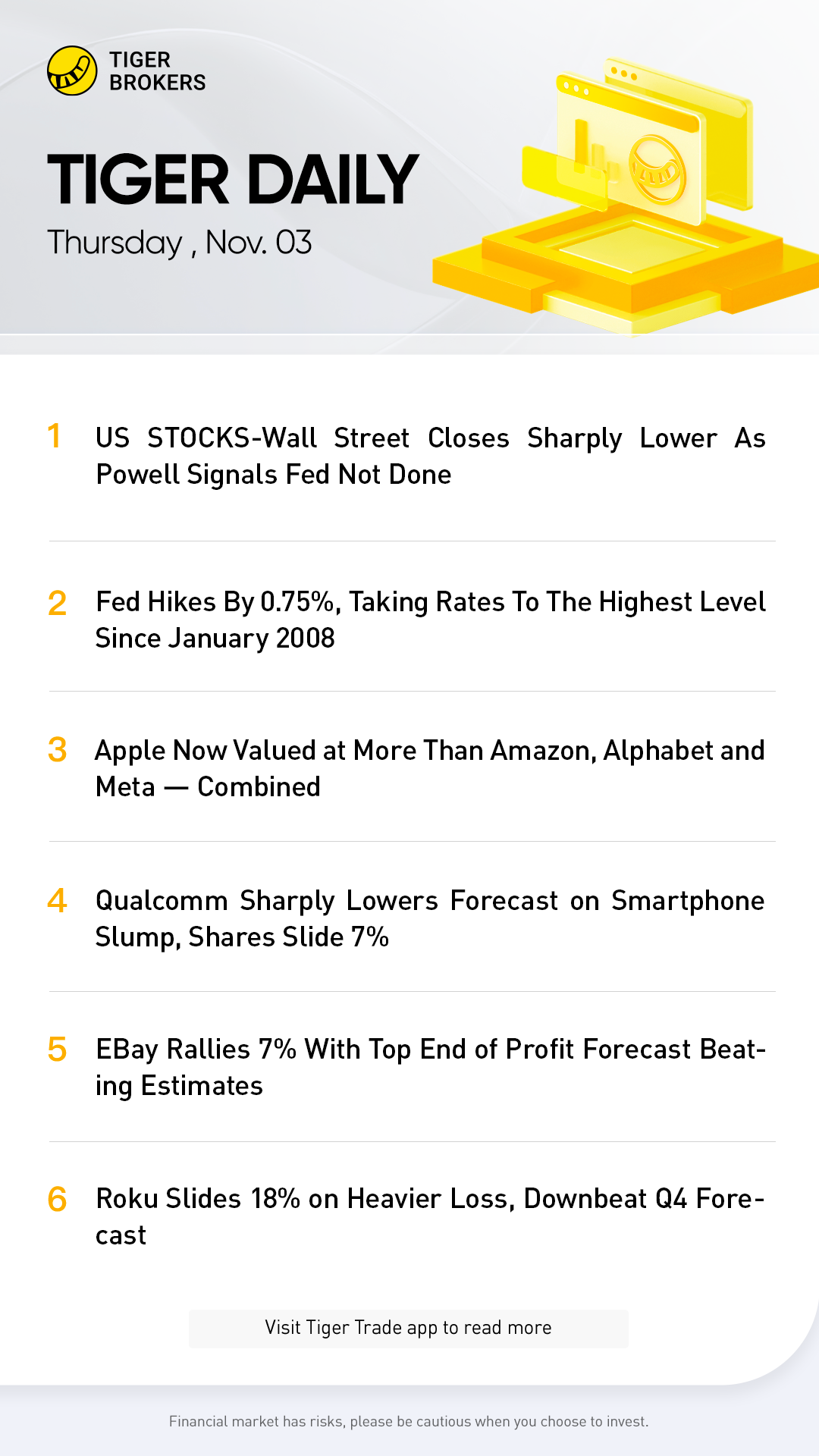- Fed hikes by 75 basis points
- U.S. private payrolls rise more than expected
- Powell says Fed not close to pausing
U.S. stocks ended sharply lower on Wednesday, as comments from Fed Chair Jerome Powell shattered initial optimism over a Fed policy statement that raised interest rates by 75 basis points but signaled that smaller rate hikes may be on the horizon.
In a volatile trading session, equities initially moved higher in the wake of the hike by the Fed, the fourth straight increase from the central bank of that magnitude as it attempts to bring down stubbornly high inflation.
The target federal funds rate was set in a range between 3.75% and 4.00%, but the impact of the hike was initially tempered by new language that suggested the central bank was mindful of the effect its outsized rate hikes have had on the economy.
Investors had been widely anticipating a 75-basis point rate hike, while hoping the Fed would signal a willingness to begin downsizing the rate hikes at its December meeting.
However, comments from Fed Chair Jerome Powell that it was "very premature" to be thinking about pausing rate hikes sent stocks sharply lower.
"It is one speech, maybe it is a moment of frustration. I don’t think he should have done it the way he did this. But I understand why he did it, and in the big picture of things, he is doing the right thing right now," said Stephen Massocca, senior vice president at Wedbush Securities in San Francisco.
"Ultimately this will be good for the economy and good for the market."
According to preliminary data, the S&P 500 lost 96.93 points, or 2.53%, to end at 3,758.68 points, while the Nasdaq Composite lost 367.48 points, or 3.37%, to 10,523.37. The Dow Jones Industrial Average fell 513.22 points, or 1.57%, to 32,139.98.
The S&P 500 had been lower prior to the policy announcement, as the ADP National Employment report showed U.S. private payrolls increased more than expected in October, giving more reason to the Fed to continue an aggressive path of rate hikes.
The private payrolls report came on the heels of data on Tuesday that showed a jump in U.S. monthly job openings, indicating labor demand remained strong.
Investors will get more looks at the labor market in the form of weekly initial jobless claims on Thursday and the October payrolls report on Friday that will help drive expectations for interest rate hikes.

